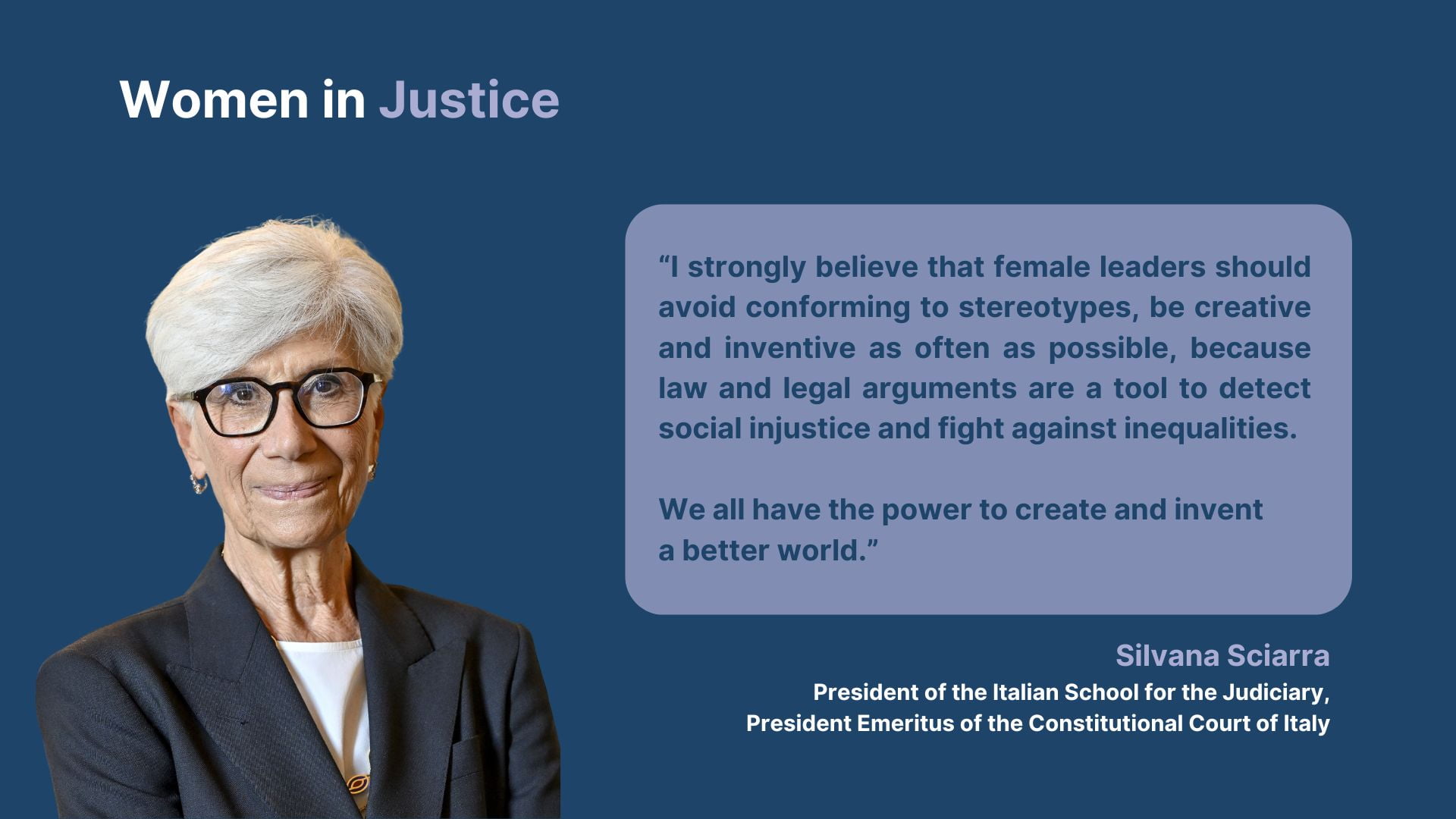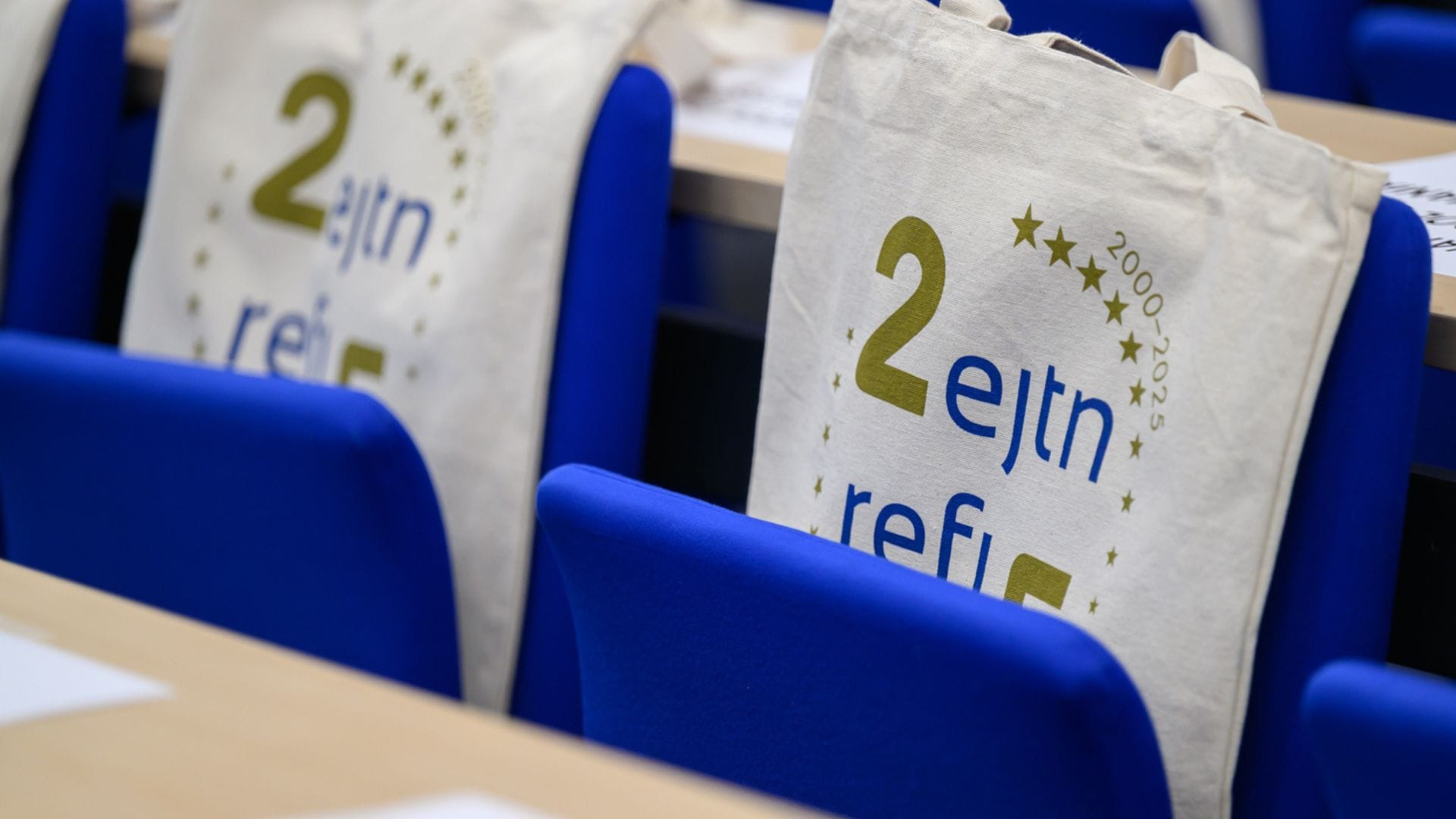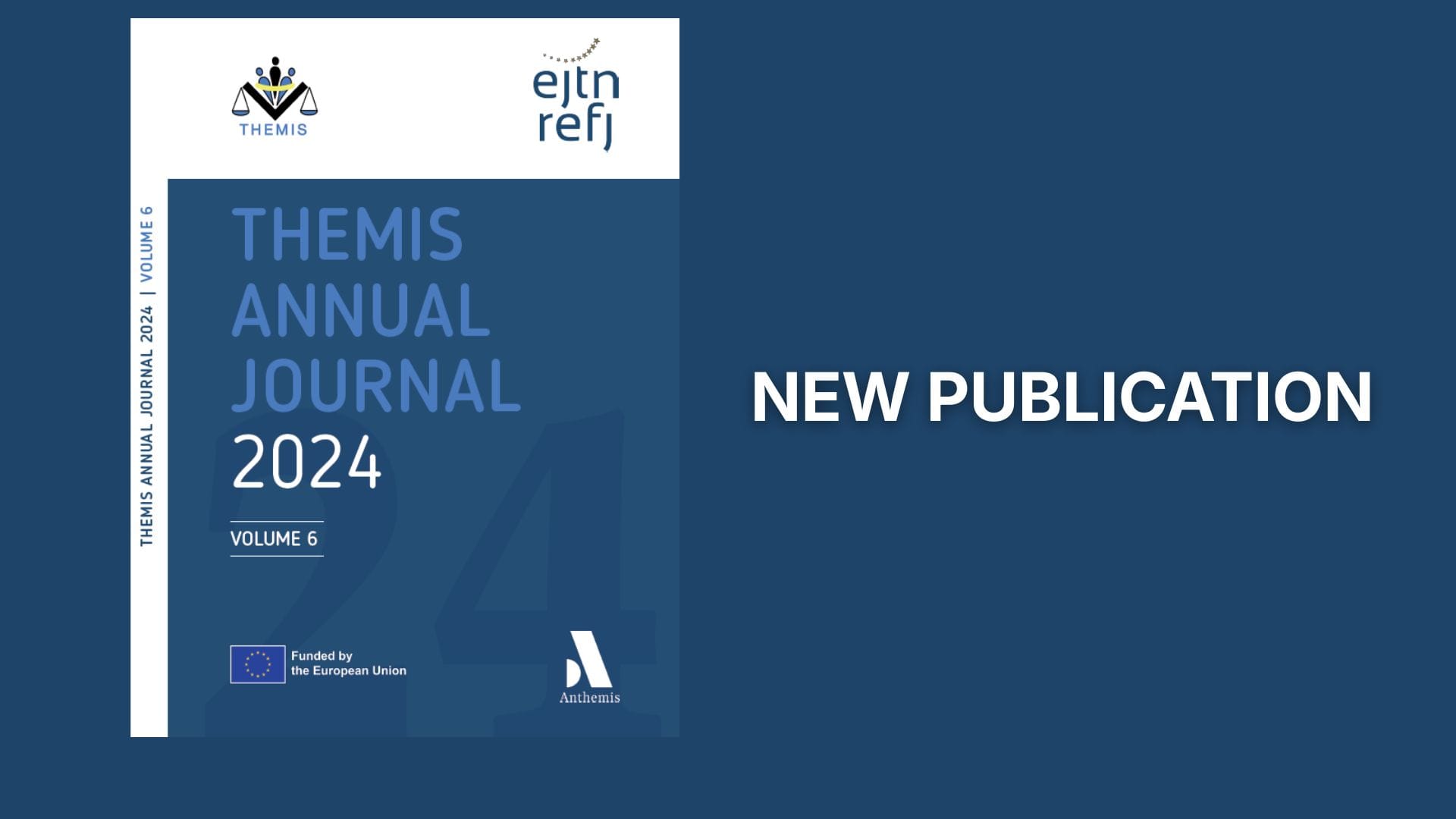Silvana Sciarra, the first female President of the Italian School for the Judiciary and the second woman to lead Italy’s Constitutional Court, has been a trailblazer for women in the judicial sector. In this interview, she reflects on her own academic and legal journey, the progress made towards gender equality in the judiciary and the importance of promoting inclusivity within the legal profession.
This interview series, launched in connection with the International Day of the Girl Child, highlights some of the inspiring women leaders within our Network.
Silvana Sciarra, you are the first female President of the Italian School for the Judiciary, the first woman elected by Parliament to become a constitutional judge and the second woman to lead the Italian Constitutional Court. You have broken significant barriers in the legal field. What has your own personal journey towards high-level judicial positions been like, and what do you think are some of the most important steps towards achieving gender-equality within the judiciary?
The criteria to appoint constitutional justices are enshrined in the Italian Constitution. Among the 15 justices composing the Court, five must be elected by Parliament in joint session – I was one of them – and they must be chosen among magistrates of the higher ordinary and administrative Courts, full professors of law and lawyers with at least 20 years of practice.
I am a full professor of labour law, by now an Emeritus, and have been lucky enough to lead an extraordinarily rich academic career, moving to many different places and being exposed to comparative law as well as engaging in research and teaching European law.
For all this, I am indebted to my mentor. He was a professor of mine, who changed my life when I was a student in law. He transferred to me a sense of curiosity and rigour, without stopping to cultivate some lightness in the everyday professional life. He thought me to work hard, to love what I was doing, so that I could stand up as a woman and show determination in maintaining my points of view.
In my professional life, I have tried to do this while maintaining a feminine perspective, at times with a touch of irony. Most importantly, I was supported by my parents and, later on, by my daughters. All of them transferred to me a sense of concreteness and loyalty, which is what a woman needs to have in order to accept new challenges in high positions, particularly in the judiciary.
Your work has spanned both academia and the judiciary, two fields where women continue to be underrepresented. How has your academic background influenced your career in the judiciary?
My academic background has been my ‘backpack’ during the nine years at the Constitutional Court and it continues to be it now, as President of the Italian School for the Judiciary. Every day I carry this backpack on my shoulders. I put in it my recollections of what I have learned and those of the many inspiring people that I have met. I fill it up with my own strong belief that an academic has to be impartial as a judge, be and appear independent and yet not lose the perception that her ideas need to always be supported by legal arguments.
Teaching abroad also meant a lot to me, as it allowed me to deepen my interest and curiosity about other legal systems. My long experience at the European University Institute in Fiesole, where I held the Chair in European Labour and Social Law, put me in contact with brilliant doctoral students from all over Europe. So many times, in the Court’s Chamber, I have thought of them and all the other students I have encountered, feeling that I have made them a promise – just like I have made a promise to my daughters – to be coherent and honest in everything I do. Both my students and my family have demonstrated to me the highest standards of responsibility and how it should be applied in a courtroom.
Networks, such as the European Judicial Training Network (EJTN) are key to supporting judicial education and collaboration across Europe. How do you think judicial training and international cooperation can help judges address societal challenges, such as gender equality and fundamental rights?
Starting from my personal – and, I insist, very privileged – experience, I value enormously all opportunities to cooperate with colleagues, who have experiences different from my own. To me, EJTN has been a confirmation of my appreciation for comparative analysis based on respect of national prerogatives as well as on the circulation of ideas and the search for fresh inspiration.
International cooperation among judges, particularly in this very complex and controversial time we live in, strengthens compliance with the democratic principles and shows the right way to enforce fundamental rights and gender equality. In any capacity, whether as a judge or as an academic, we feel stronger if we share the same fundamental values and build the instruments to guarantee the Rule of Law throughout the European Union. Women become, in my view, much more aware of their innate strength and ability to argue when they are confronted with an international environment.
EJTN should always guarantee that the voices of women can be heard and their opinions respected. Empowerment of women in the judiciary is an open, never-ending process, and it needs to be supported in transparent ways.
For young women aspiring to enter the legal profession or judiciary, what personal experiences or lessons have shaped your career, and how can they inspire the next generation of female leaders?
In my early days, I had to learn very quickly how to acquire my own style in the academic circles, mostly dominated by male colleagues. I asked myself so many things: Should I be arrogant and never give up? Should I avoid confrontations? What type of language should I use? Could I be funny and make jokes to release the tension? And of course, how should I dress? I believe many women have these kinds of questions, and more, at the back of their minds, unless they are completely self-confident and never experience any uncertainty.
I think that legal professions, despite the enormous steps forward that have already been made, still may place women in intimidating situations and create tensions. An effective approach is quite straightforward: be natural and respectful, while being competent, firm and convincing. As far as one’s personal appearance, wear what makes you feel good and comfortable, keeping in mind – as I mentioned before – the lightness in life.
I strongly believe that female leaders should avoid conforming to stereotypes, be creative and inventive as often as possible, because law and legal arguments are a tool to detect social injustice and fight against inequalities. We all have the power to create and invent a better world.
For more information on our Member, Italian School for the Judiciary, you can visit their website and follow them on X.




